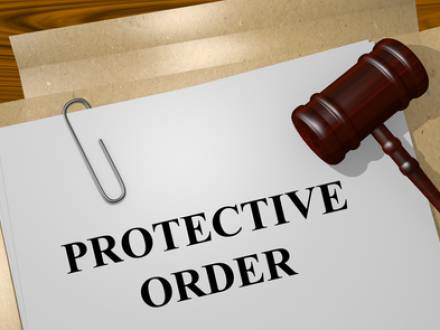When Both Parties Seek Orders of Protection in Illinois
 Domestic violence disputes can be complex and emotional. Law enforcement often has trouble determining which party to arrest because an argument got out of hand, and both parties were involved in physical violence. More often than not, the male is arrested simply because he may be bigger and more able to cause serious physical harm.
Domestic violence disputes can be complex and emotional. Law enforcement often has trouble determining which party to arrest because an argument got out of hand, and both parties were involved in physical violence. More often than not, the male is arrested simply because he may be bigger and more able to cause serious physical harm.
Sometimes, this is the right call; at other times, the female may have been the aggressor, regardless of her size or gender. While it is usually one party that requests an order of protection (750 ILCS 60/214), both parties can sometimes seek orders of protection (mutual orders of protection) simultaneously. These cases are even more complicated as the court must determine whether protection is justified for one party, both parties, or neither party.
Whether you are facing an order of protection or you want to file an order of protection in response to one filed against you, the best thing you can do is speak to a Will County, IL criminal defense lawyer. Your attorney can help you defend yourself against the protection order filed against you and help you determine whether filing your own request for a protection order is the best course of action.
What is an Order of Protection in Illinois?
An Order of Protection is a court order meant to protect an individual from sexual assault, stalking, domestic abuse, or other types of violence. An Order of Protection may prohibit contact or restrict the defendant’s ability to live in the same home. In Illinois, there are six types of protection orders:
An Emergency Order of Protection is a temporary order issued quickly in urgent situations, and usually lasts a few weeks.
- An Interim Order of Protection is a temporary order, typically lasting up to 30 days while the court considers a more permanent order.
- A Plenary Order of Protection is a final order that provides long-term protection and is issued after a full hearing with both parties present.
- A Firearm Restraining Order prohibits a person from possessing a firearm.
- A Stalking No Contact Order is specifically issued for stalking situations.
- A Civil No Contact Order is for sexual assault cases, even without a prior relationship.
Violating an Order of Protection is a serious offense that can lead to arrest. An Order of Protection can be filed in any county, including where the defendant lives, where the alleged victim lives, where the abuse occurred, or where one party is temporarily located.
What Are Mutual Orders of Protection?
Mutual Orders of Protection occur when both parties file for protection against one another and are more common in volatile relationships. Illinois law generally disfavors mutual orders because the court must make separate, specific findings for each petition. The judge will not issue mutual orders simply because both parties filed.
There are usually more credibility issues to deal with when both parties file for mutual orders, and there is the risk that at least one party is filing in retaliation or as a strategy in a divorce or custody dispute. It can also be difficult for law enforcement to enforce orders when both parties are restricted.
Contact a DuPage County, IL Domestic Violence Lawyer
If you are involved in a dispute where both you and the other side are seeking an Order of Protection, the outcome can shape your future. Courts generally require significant evidence before granting mutual orders, and having an experienced Aurora, IL criminal defense attorney from the Law Office of Patricia Magaña, LLC can make all the difference in the outcome.
Attorney Magana will carefully build a defense on your behalf while protecting your rights and guiding you through the complexities associated with Illinois protection orders. To schedule your free consultation, call 630-448-2001. Attorney speaks Spanish.

 630-448-2001
630-448-2001






